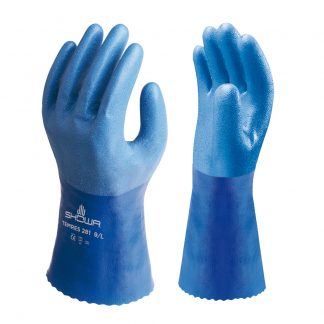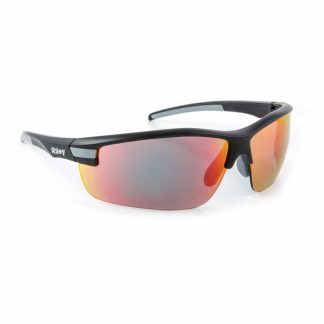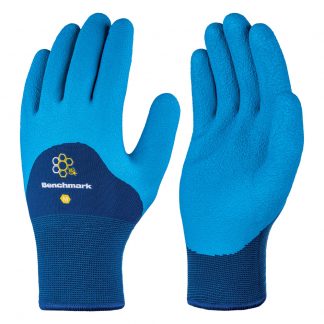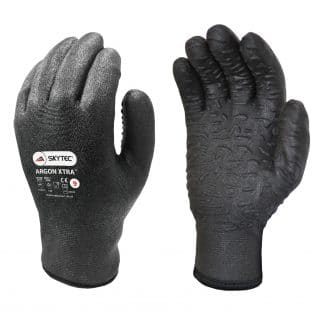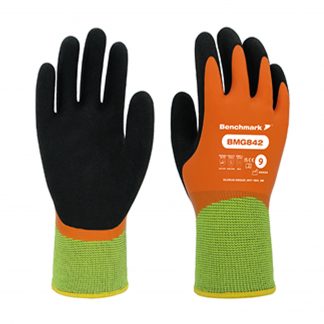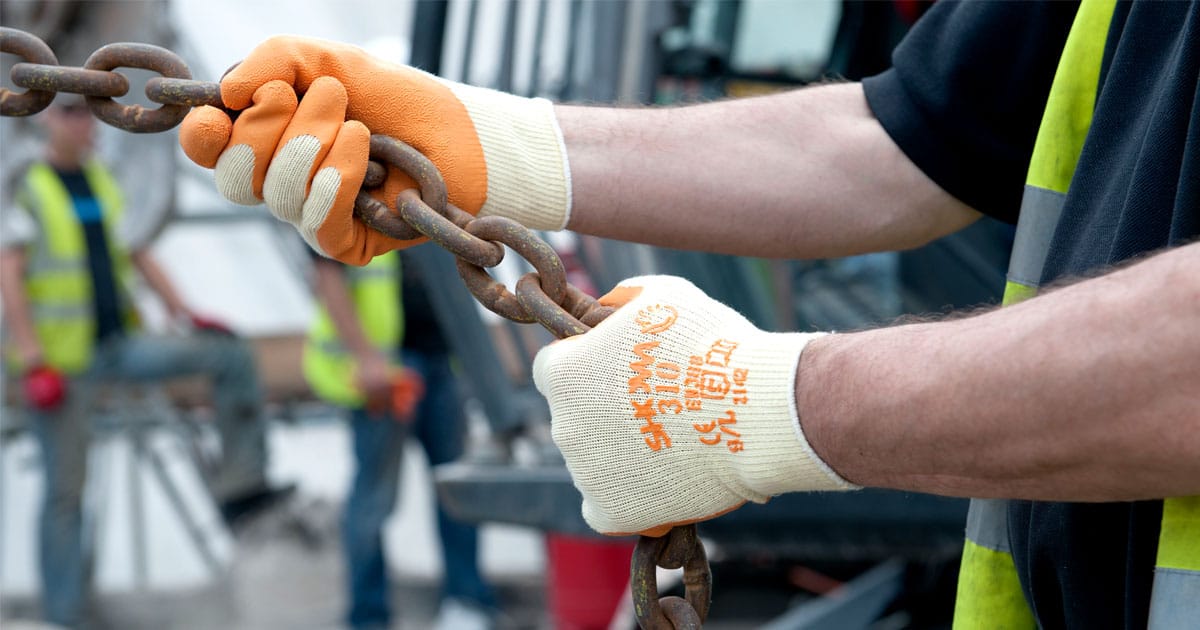
Do you find yourself wondering what do the different types of glove coating protect you from? There are many different glove coatings that can help protect you and can improve things like good grip, chemical resistance, thermal protection and much more.
Why is glove coating important?
Glove coatings are important as they can help protect you and your hands from potential hazards. The right glove coating for you depends on what job you’re carrying out. Below is our guide to glove coatings. We’ve analysed each one to help you choose the most suitable glove for your needs.
Polyester / Nylon
Polyester or Nylon coatings are usually used for general handling. This coating is designed to protect your hands while working with harsh chemicals or sharp materials.
Pros:
- Lightweight, strong and elastic
- Good abrasion resistance and durability
- Lint free
- Resists to several washing, doesn’t shrink and dries quickly
- Absorbs moisture and evaporates it quickly
- PET bottles can recycle to make rPET (recycled polyester)
Cons:
- Flammable material
- Slightly rough texture
Suitable for the following industries: Aerospace, Automotive, Construction, Logistics, Manufacturing
Cotton
Cotton coating is also typically used for general handling. Gloves with this type of coating are generally used to protect against dirt and abrasions.
Pros:
- Natural cellulose fibre.
- Flexible, soft and non-irritating
- Absorbs perspiration
Cons:
- Medium mechanical resistance (needs to be mixed with polyester for higher resistance)
- Lint material
Suitable for the following industries: Cleaning & facilities, Logistics
Para-Aramid
Para-Aramid gloves are used to resist cutting, abrasion and heat. Gloves with para-aramid coating are hard-wearing and protect against radiant and conductive heat.
Pros:
- Lightweight, supple, comfortable, washable
- Provides heat and cut protection
- Flame resistant
- High tensile strength
- Resists to several washing
Cons:
- Lint material
- Hot (uncomfortable in hot environment)
- Reactive to UV (change colour and drop of properties over time)
- Tend to shrink after the first washing
Suitable for the following industries: Aerospace, Automotive, Manufacturing, Food, Mechanical
HPPE
High performance polyethylene (HPPE) coating is extremely lightweight yet strong 5 times stronger than steel. Gloves with this coating are abrasion and cut resistant as well as comfortable.
Pros:
- Fresh sensation, do not conduct heat
- Lint free
- High tearing resistance and tensile strength
- Resists to several washing
Cons:
- No protection against heat
- Usually, white so can get dirty easily
Suitable for the following industries: Aerospace, Automotive, Manufacturing, Construction
PU (Polyurethane)
Polyurethane (PU) coated gloves are perfect for protecting you against sharp materials and objects. This coating offers high breathability and dexterity.
Pros:
- Thin coating with high dexterity,
- To be used in Dry, greasy, slightly oily conditions
- Breathable
- Excellent resistance to abrasion
- Low particulate shade
Cons:
- PU is in contact with the hand
- DMF is harmful in high concentration over 1000 ppm/Kg (cheap PU gloves)
- Absorbs water and oils
Suitable for the following industries: Aerospace, Automotive, Chemical Environments, Construction, Healthcare, Manufacturing
Nitrile Foam
Nitrile foam coated gloves have a synthetic rubber coating which is great for grip and protection. This coating acts like a sponge and when working in oily conditions, it can provide superb grip.
Pros:
- Breathable
- Excellent grip in dry, greasy, oily conditions (behaves like a sponge by soaking up oil and displacing it)
- Coating not in contact with the skin
- Excellent resistance to abrasion
Cons:
- Oil can go through in very oily conditions
- Light contact heat protection
Suitable for the following industries: Aerospace, Automotive, Construction, Manufacturing
Nitrile
Nitrile coated gloves keep your hands protected while you work with harsh chemicals or sharp materials and have good resistance to rips or tears.
Pros:
- Liquid proof
- Coating not in contact with the skin
- Excellent resistance to abrasion and puncture
- Good grip in dry conditions
Cons:
- Slippery in oily / wet conditions
- Non breathable
- Light contact heat protection
Suitable for the following industries: Aerospace, Automotive, Cleaning & facilities, Construction, Manufacturing
Latex
Pros:
- Liquid proof
- Coating not in contact with the skin
- Excellent resistance to abrasion and puncture
- Good grip in dry conditions
Cons:
- Slippery in oily / wet conditions
- Non breathable
- Light contact heat protection
Suitable for the following industries: Automotive, Cleaning and facilities, Construction, DIY and Gardening, Manufacturing, Transport, Warehousing

